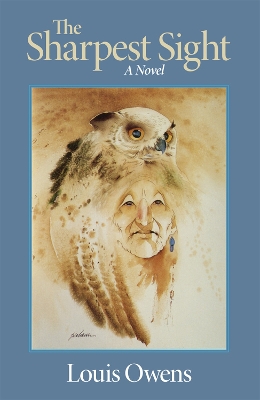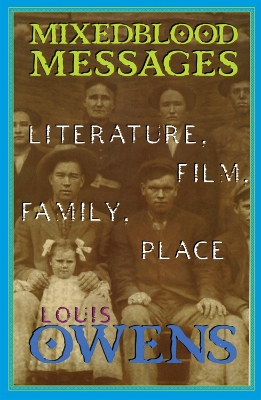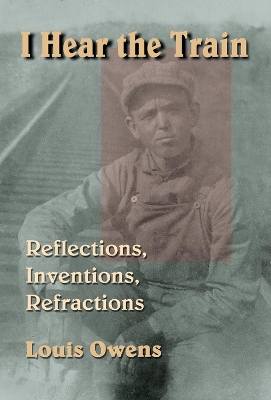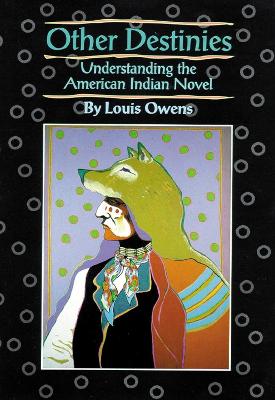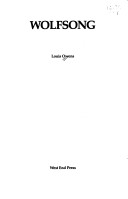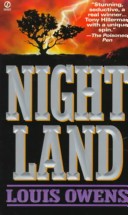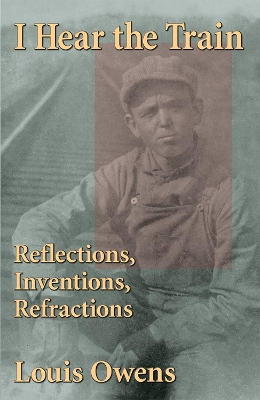American Indian Literature and Critical Studies
1 primary work • 9 total works
Book 10
Bone Game is a murder mystery on a grand scale. Cole McCurtain, a mixed-blood Indian professor of Indian Studies at Santa Cruz, California, is haunted by dreams dating back to events of Spanish California. Images of a Spanish priest murdered in 1812, a rearing grizzly bear, and a black-and-white painted Indian who offers bones in his extended hands come at a time when dismembered pieces of a young woman are washing ashore in 1993. The dreams become increasingly urgent as the murders become more frequent, and Cole's family and friends gather to help-including Choctaw relatives who travel west from Mississippi because this story's so big, Cole sees only a little bit of it.
""With The Sharpest Sight, Louis Owens emerges as a strong and distinctive voice in contemporary Native American fiction. He writes with conviction, heart, and insight, and his novel, populated with complicated, passionate men and women, provides an insider's view into a rich fictional world.""-Michael Dorris, author of A Yellow Raft in Blue Water, and The Crown of Columbus, with Louise Erdrich.
Owens offers new insights into the works of Indian writers ranging from John Rollin Ridge, Mourning Dove, and D'Arcy McNickle to N. Scott Momaday, Leslie Silko, James Welch, and Gerald Vizenor. In his analysis of Indians in film he scrutinizes distortions of Indians as victims or vanishing Americans in a series of John Wayne movies and in the politically correct but false gestures of the more recent Dances With Wolves. As Owens moves through his personal landscape in Oklahoma, Mississippi, California, and New Mexico, he questions how human beings collectively can alter their disastrous relationship with the natural world before they destroy it. He challenges all of us to articulate, through literature and other means, messages of personal and environmental - as well as cultural - survival, and to explore and share these messages by writing and reading across cultural boundaries.
In sophisticated prose, Owens reveals the many timbres of his voice--humor, humility,love, joy, struggle, confusion, and clarity. We join him in the fields, farms, and ranches of California. We follow his search for a lost brother and contemplate along with him old family photographs from Indian Territory and early Oklahoma. In a final section, Owens reflects on the work and theories of other writers, including Gayatri Chakravorty Spivak, Gerald Vizenor, Michael Dorris, and Louise Erdrich.
Volume 40 in the American Indian Literature and Critical Studies Series
Nashoba's world is peopled by, among others, a bright young man who sells vision quests to romantic tourists, a determined elder whose power makes her a force to be reckoned with on the reservation, a resident anthropologist more ""native"" than the natives, a corrupt tribal chairman, a former Hollywood extra who shouts at reservation women the scraps of Italian he learned from other ""Indian"" actors, and the ranger's estranged wife. Confusion and violence follow their encounter with a right-wing militia group training secretly on tribal land. The contrast between these Rambo types and the various Native American characters typifies the sardonic humor running throughout this novel of contemporary Indian identity.
Volume 41 in the American Indian Literature and Critical Studies Series
In this innovative collection, Louis Owens blends autobiography, short fiction, and literary criticism to reflect on his experiences as a mixedblood Indian in America.
In sophisticated prose, Owens reveals the many timbres of his voice--humor, humility,love, joy, struggle, confusion, and clarity. We join him in the fields, farms, and ranches of California. We follow his search for a lost brother and contemplate along with him old family photographs from Indian Territory and early Oklahoma. In a final section, Owens reflects on the work and theories of other writers, including Gayatri Chakravorty Spivak, Gerald Vizenor, Michael Dorris, and Louise Erdrich.
Volume 40 in the American Indian Literature and Critical Studies Series

